Automated External Defibrillator (AED) Infants & Children
The use of an AED is applicable to children and infants and the earliest possible application of the device will result in significantly improving the chance of survival.
Inspect the AED upon securing it. Pediatric pads should be utilized if the patient is less than eight years old or less than 55 pounds (25 kg). The standard adult pads may be used in place of pediatric pads; however, these shouldn’t make contact with each other. Note that a manual defibrillator should be used for infants less than a year old. An AED may be used in the event that a manual defibrillator is not available. Some devices can be switched to pediatric settings that deliver a shock specialized for infants. If this is the case, set the AED to the pediatric shock when dealing with children under eight years old. If the AED cannot operate to a pediatric specification, the standard adult shock may be given. This electric shock may possibly be the treatment for a fatal heart rhythm.
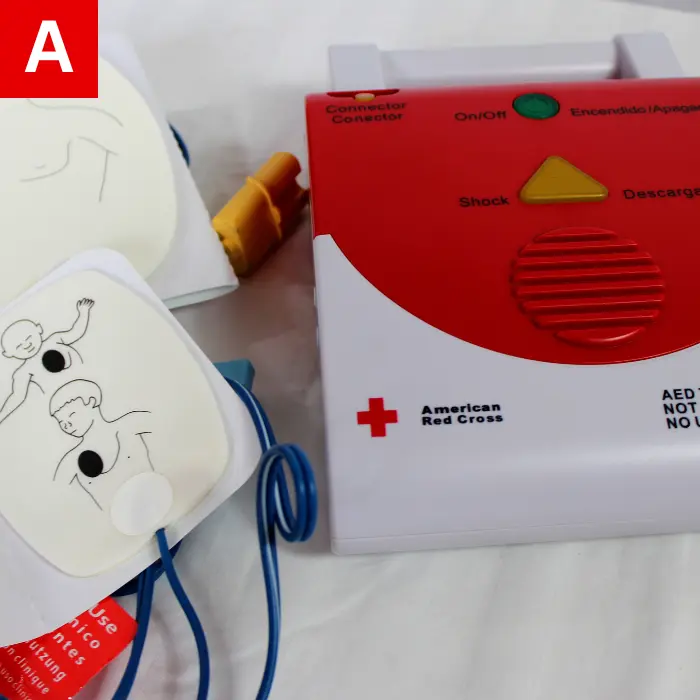
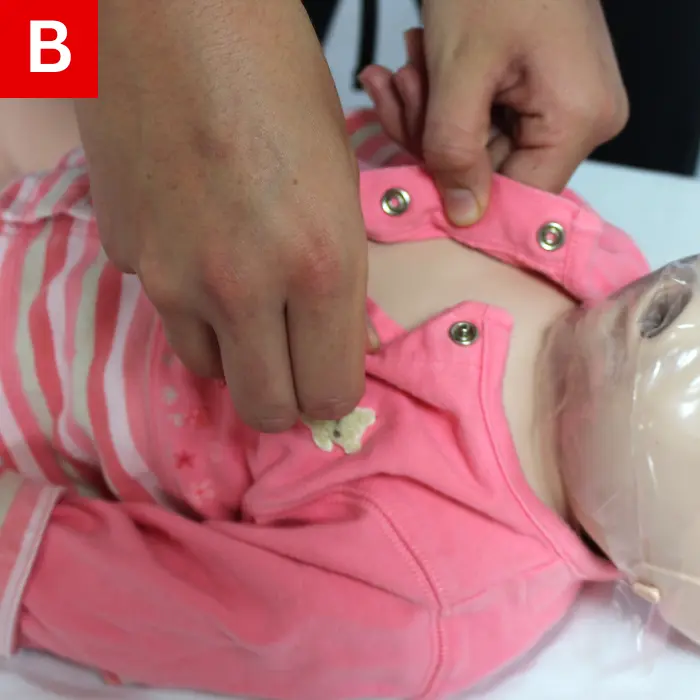
Figure 12
AED Steps for Children and Infants
- Secure an AED (Figure 12a).
- Retrieve it from its case.
- Turn on the device.
- Keep the baby’s chest exposed (Figure 12b).
- Dry it if necessary.
- Peel off any existing medication patches, if applicable.
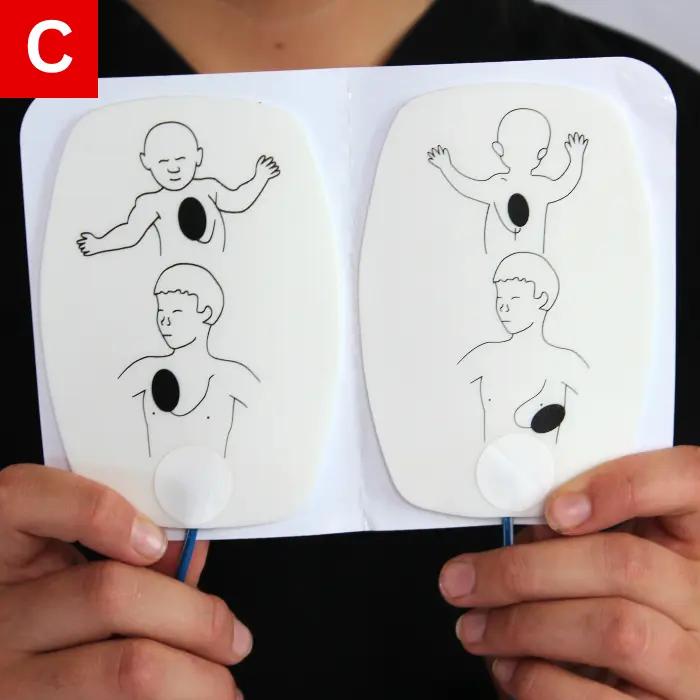
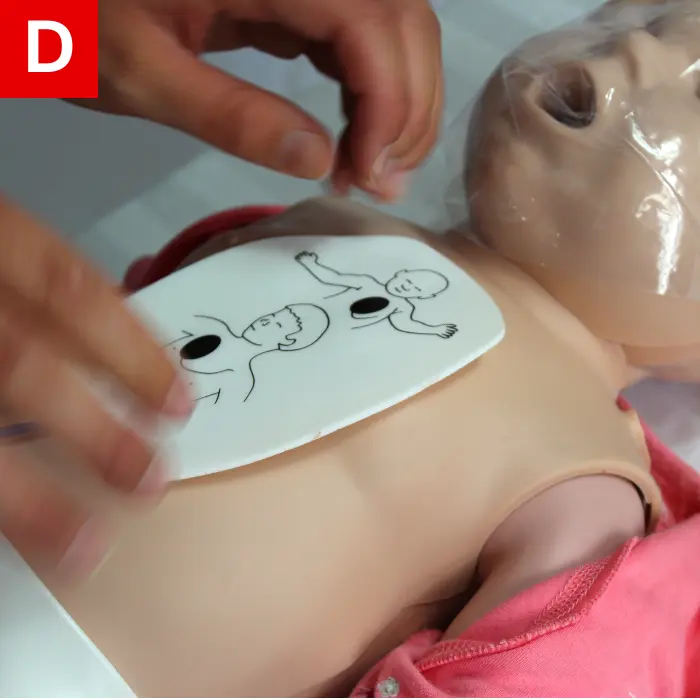
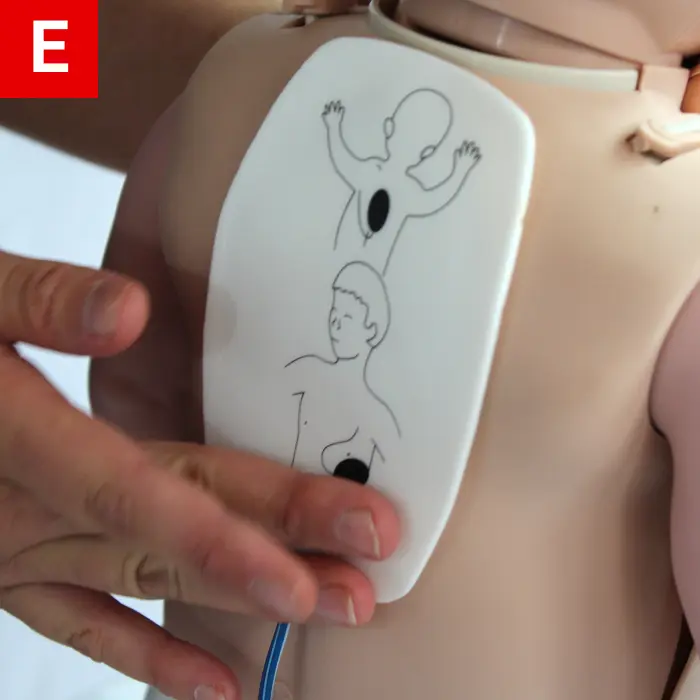
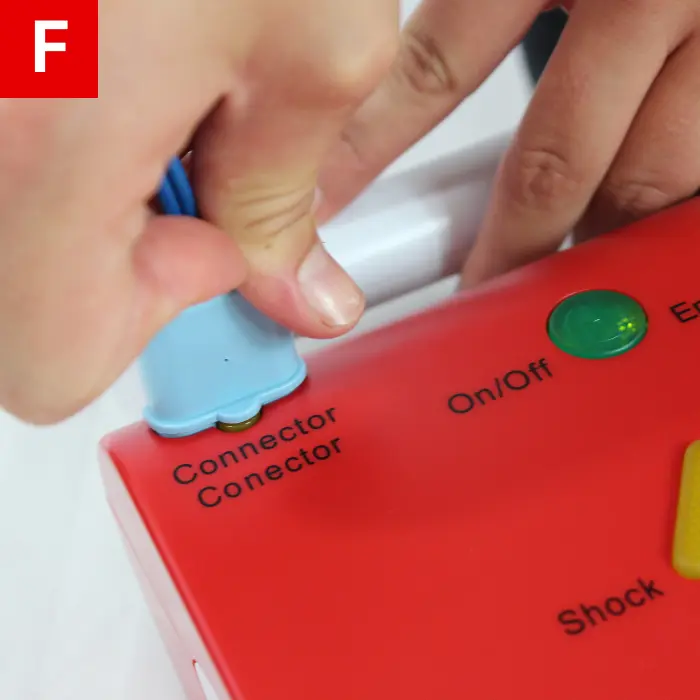
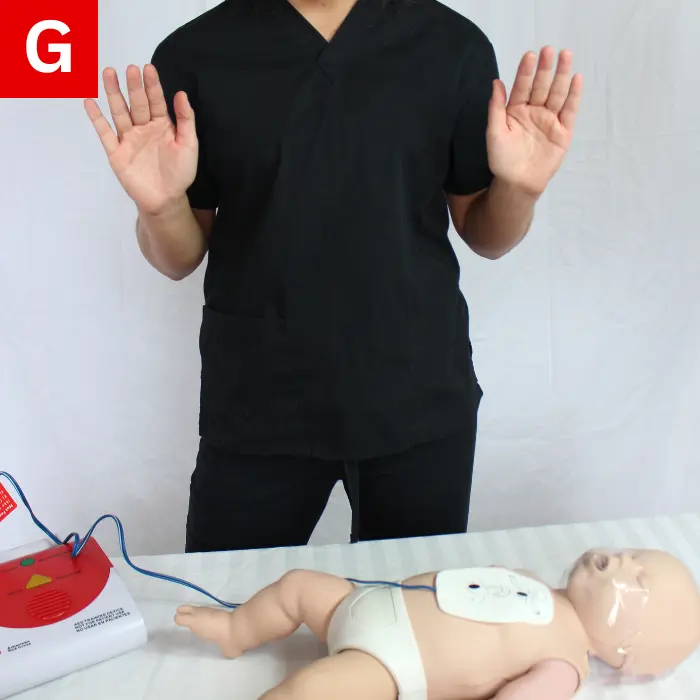
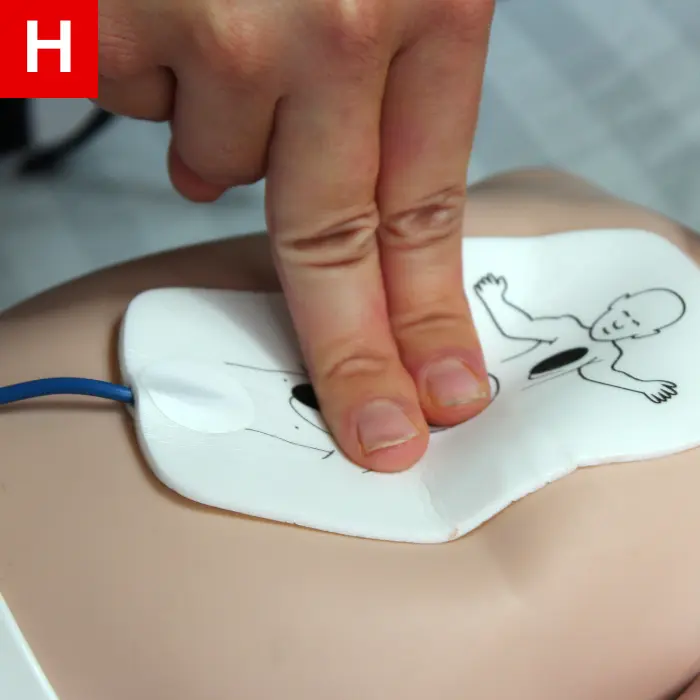
Figure 12
3. Assemble the pediatric AED pads (Figure 12c).
- Peel off the back cover.
- Check the infant’s body for a pacemaker or implanted defibrillator.
4. Place the pads onto the infant (Figure 12d).
- Place one pad on the upper right chest above the breast or on the front of the infant’s chest.
- Place the second pad on the lower left chest below the armpit or the infant’s back (Figure 12e).
- If using adult pads, ensure that the pads are not touching each other.
5. Make sure the wires are properly attached to the AED (Figure 12f).
6. Keep a safe distance from the infant (Figure 12g).
- Stop CPR operations.
- Warn others not to touch the infant.
7. Allow the AED to analyze the rhythm of the infant’s heart.
8. If the AED reads “Check Electrodes,” proceed by following these steps:
- Make sure the electrodes are not in contact with each other.
- Make sure the leads are attached properly to the pads and the machine (Figure 12f).
9. If the AED reads “Shock,” proceed by following these steps:
- Be sure that no one is touching the infant.
- Hold the flashing shock button until the shock is released.
10. For two minutes, execute CPR starting with chest compressions (Figure 12h).
11. Repeat steps 1-10.
